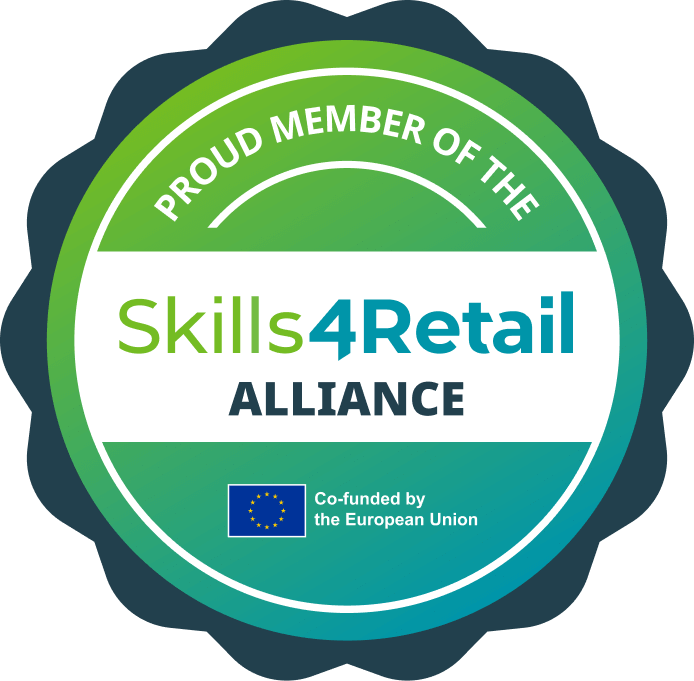Understanding the Impact of Proposed US Tariffs on EU Retailers: What Medium-Sized Retailers Need to Know
For any retailers operating within the European Union, staying informed about global trade developments is essential, especially when they have the potential to affect your costs, margins, or supply chains. One such issue currently unfolding is the proposal by the United States to introduce new tariffs on a range of EU goods.
Although the full implications are not yet clear, it is important to understand the possible impacts on EU retail businesses, and where to find reliable information and support as the situation develops.
The Context: US Tariff Announcements and Trade Tensions
In mid-2025, the US government announced its intention to impose new tariffs on selected goods imported from the European Union. These proposed tariffs are linked to a combination of long-standing trade concerns, including digital services taxes, industrial subsidies, and broader trade imbalances.
While the final list of targeted goods has not been confirmed, early reports suggest that products in areas such as machinery, fashion, agriculture, and luxury goods could be affected.
For EU retailers that import goods from the US or export products to American customers, this development introduces uncertainty and the potential for financial and operational disruption. Given the unpredictable nature of international trade policy, businesses should stay alert and begin evaluating their exposure to risk.
What Could These US Tariffs Mean for Retailers?
1. Rising Costs and Pressures on Pricing
If tariffs are introduced, they could result in increased costs for imported goods or components. These costs are usually passed along the supply chain, meaning that retailers may face reduced margins or need to increase prices. In competitive or price-sensitive markets, even small price hikes can have a noticeable effect on sales.
2. Disruption to Supply Chains
Retailers with established US suppliers or products containing US-origin materials may experience disruption. Alternatives may need to be sourced within the EU or from other international suppliers. This could involve complex changes to contracts, logistics, and quality controls, all of which take time and careful planning.
3. Delayed Business Decisions
When trade policies are uncertain, it becomes harder for retailers to plan ahead. Decisions around expansion, product development, or entering new markets may be delayed or scaled back. This can affect competitiveness and long-term growth.
4. Impact on EU Exporters
Retailers exporting European-made goods to the US may face additional duties that make their products more expensive in American markets. This is especially relevant for high-value or premium products such as food, beverages, fashion, and cosmetics. As a result, retailers may need to adjust pricing strategies or invest more heavily in brand awareness to retain market share.
Where to Find Reliable Updates and Support
Because trade policy can evolve quickly, staying informed is critical. The following organisations and websites provide trustworthy information, regular updates, and access to support services:
European Commission – DG Trade
policy.trade.ec.europa.eu
Provides official updates on EU trade policy, negotiations, and responses to global trade developments.
World Trade Organization (WTO)
www.wto.org
Covers global trade disputes and decisions, including legal frameworks and resolution processes.
BusinessEurope
www.businesseurope.eu
Shares analysis on international trade and economic impacts on European businesses. Provides briefings and recommendations to policymakers.
EuroCommerce
www.eurocommerce.eu
The voice of retail and wholesale in Europe, EuroCommerce engages with the EU on policy issues and offers members practical guidance.
Local Chambers of Commerce
Chambers of Commerce in each EU country often provide practical advice and briefings on trade developments. Many also offer one-to-one business support and legal assistance.
European Commission Customs Portal
ec.europa.eu/taxation_customs
This site offers practical information about customs classifications, duties, and procedures.
Steps Retailers Can Take Now
While the outcome of the US tariff proposals is still unknown, retailers can take steps now to reduce risk and prepare for possible changes.
1. Audit Your Supply Chain
Identify any products, suppliers, or components with US links. Determine how exposed you are and whether alternative options exist.
2. Stay Connected
Join relevant business associations and subscribe to their updates. Participating in events or webinars can also help you stay informed and connected with other businesses in your sector.
3. Plan for Price Sensitivity
Review your pricing strategies and assess your capacity to absorb or pass on additional costs. Consider introducing flexibility into contracts or pricing models.
4. Talk to Your Logistics Providers
Shipping and logistics companies often have early insights into customs changes. Maintain open communication and review delivery timelines and routing options.
5. Use Business Support Services
EU-funded programmes, national agencies, and regional development bodies may offer support to retailers affected by trade disruption. This could include grants, consultancy services, or training programmes.
Remaining Agile in Uncertain Times
Trade policy, particularly between major global economies like the EU and the US, is subject to rapid change and political influence. While the tariff proposals may be revised or withdrawn before implementation, retailers who plan ahead and remain agile will be best positioned to respond effectively.
Medium-sized retailers play a vital role in the EU’s economy and are often the most exposed to sudden shifts in global trade. By staying informed, engaging with reliable sources, and exploring mitigation strategies early, retailers can protect their operations and maintain customer confidence.
Explore More with Skills4Retail
The Skills4Retail initiative supports the upskilling of retail professionals across Europe. Whether you are looking to strengthen your strategic capabilities, train your team, or adapt to economic change, our training programmes and resources are designed to help.


 Join our mailing list
Join our mailing list
